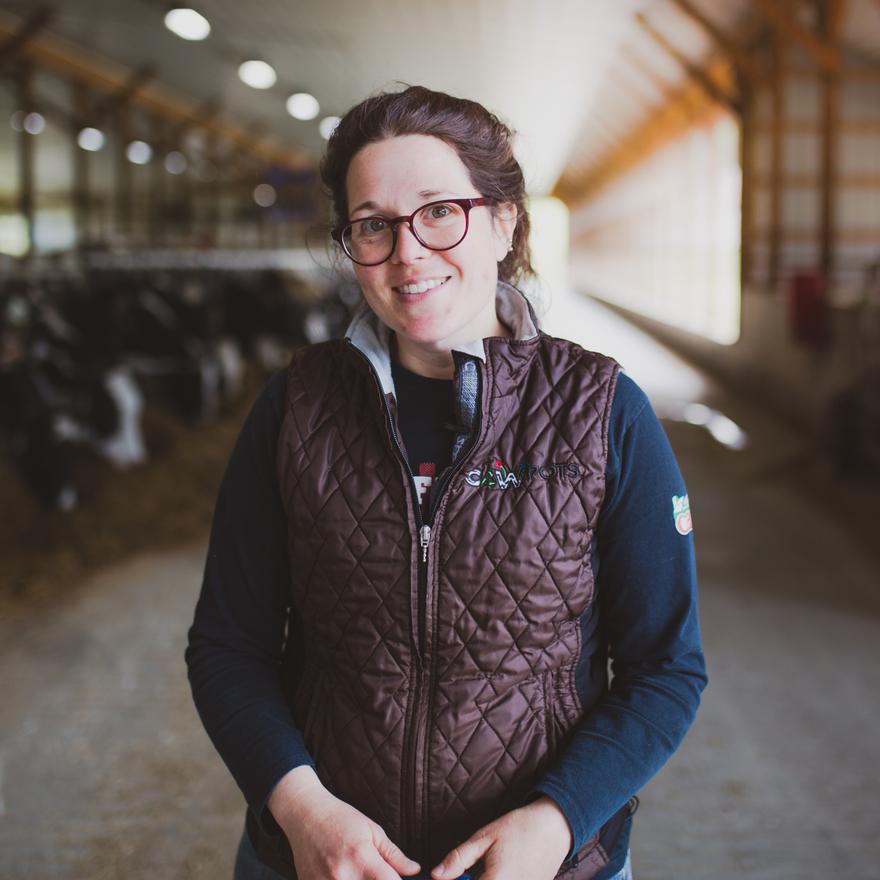Careers in Conservation and Soil Science: Amanda Freund
Interview with Amanda Freund by Ana Candelli
What's the correlation between dairy farms and soil?
100% because we rely on the crop land and the soils we have to be able to provide us with a good yield on our crops each year to be able to feed our cows. We don't have anything if we don't have good healthy soil.
Any management plans that you follow?
Yes. We have a comprehensive nutrient management plan with the USDA NRCS.
Any significant challenges with maintaining soil health?
Any dairy farm you speak to in the state of Connecticut and probably New England is challenged with phosphorus levels. There is not yet a state defined cap on phosphorus loads defined by the NRCS, but it is anticipated that will inevitably be a defined number in the month or years ahead of us. Once that phosphorus cap is defined there are probably going to be very real challenges that everyday farmers in the state will be facing because it could potentially eliminate certain yields from being able to receive any manure until the phosphorus level is below what the cap is. That could really really have very significant impacts on all dairy farms.
Is runoff a problem?
We’ve done a lot of things to try to reduce runoff. On our farm, we use a dragline system with injection. We are actually, at the start of the growing season, injecting the manure into the soil rather than top dressing to reduce erosion. We apply a cover crop to all of our corn fields so that there remains a viable root system in that soil through the winter months. We also do no till cropping so that we are not disrupting the soil structure as much as possible. We also maintain riparian buffers along all of the water ways so that if there is potentially any runoff that there is a filtration system that prevents those nutrients from going into the water and this past spring we actually did 2 projects with the NRCS on a 40 acre field and so one of those projects was installing pipeline to help extract the wet spots to help the water run off the field without creating wet spots in the field which then end up resulting in compaction. We are driving over the wet spots with equipment and the second project was doing strip cropping. On the steep slopes of the fields they have been converted to our perennial crops, which is grass, and the level areas of the fields are now our annual crops, which is corn, and so this was a major project to also help reduce any kind of run off.
Why is cover cropping important?
You are one making sure that there is a plant that is got a root system to hold that top layer of topsoil impact because once you harvest that corn crop there is nothing out there that's placed to create runoff and secondly when it comes time to plant the next year’s crop of corn that when you that grass that was growing there that it is going to end up offering additional organic matter to the soil when you plant the crop for next year.
Please explain no till practices.
When we go to plant our corn crop we are planting over top of that cover crop. We are not breaking up that soil unnecessarily. We are trying to limit our impact on soil as much as possible. We are trying to reduce the number of times the equipment is running on that land. The fact that we can maintain the soil structure is both in our delivery of fertilizer, in the form of cow manure, as well as when it is time to plant the seed into the soil.
Is there a direct impact between dairy cows and soil?
They are a primary source of fertilizer for all of our crop land coming from our cows. It is synonymous. We can't have one without the other. We rely on the crops to feed the cow and the cow’s manure for fertilizer to grow our crops. It's a fully enclosed system. They rely on each other equally.
Scientific things you do on the farm?
We have worked with UConn Extension on a couple different projects. One of them is setting up our manure spreader with a GPS, so we can evaluate the amount of manure that we are spreading on individual fields. We have years and years of records of soil test, so we can truly evaluate any kind of progress and improvements that we have made to our soil over decades from all of that information. We gnomically test every single animal that we raise. We work with a number of ag service providers to analyze the genetic quality of the animals on the farm. Science is a critical component to everything we do here. Soil should be protected and preserved to grow good and healthy quality crops. At the end of the day we rely on the quality of that crop for a healthy animal to produce our milk. Our dairy nutritionist does probably once a month an analysis on both our corn and grass we have harvested and evaluates all the different parameters from nutrients to minerals. He makes sure we grow the best possible crops for our cows.
What does soil mean to you?
It's the life blood of what we do here. The soil is providing our farm the ability to grow the crops for our animals but it's also a really critical component to carbon sequestration. I absolutely believe that our farm have a very important role to play in mitigating climate change because the soil has such an incredible capacity to sequester carbon. We are the caretakers of that land.
What do you think the future will hold for the environment?
I think a lot of areas can be improved from energy efficiency to what kinds of cars people are driving. It’s such a multi pronged thing but the fact that here in Connecticut dairy farms maintain the largest percent of open space and we are the caretakers of soil. If we empower farms with information and financial incentive to follow new cropping practices that might be more beneficial to the soil. I believe there is so much opportunity there.


